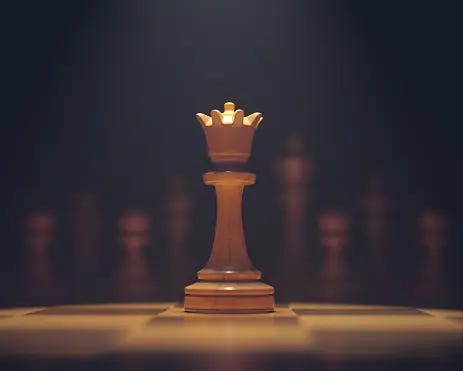I was struggling with my ratings as I was stuck in my 500s. Miraculously, I moved forward and reached 587. There were “Return of the King” vibes when things started going drastically wrong. Though I implemented the strategies I summarised in my post about reciprocity, two or three things pulled me back to 455.
I am rising again, but this rise won’t be sustainable if I don’t note the learnings.
Don’t play when you’re mentally/physically exhausted. Limit to 5 games per day.
If you take out the queen for an attack mission, don’t allow the opponent to surround the piece and set up the game for an unequal exchange.
Don’t allow the opponent to pin a key piece along with a check. That’s supposed to be your ace move.
Plus, I need to add two more points to my chess strategy outlined in Reciprocity / Regret.
When you move a piece in Chess, you should try to achieve one of these outcomes:
a) Other pieces are better positioned to make the next move.
b) Gain points by capturing a piece.
c) You support other pieces and build your overall position.
d) If there is a possibility of losing a piece, you will gain a piece of equal or higher value.
e) You checkmate the opponent’s king.
f) You avert a checkmate.
g) You avert the loss of the queen or a pin by the opponent.
The rise can be rapid, but the fall can be equally quick. You need to make it more stable and sustainable. If you win continuously for a while but ignore the building of the scaffolds that can keep you there, the fall is imminent.
This goes for everything: career, health, relationships and finances. I failed to understand the rules and frameworks for playing at the next level.
It’s important to be conscious of second and third-order effects while making every move—both on the chessboard and in real life.


